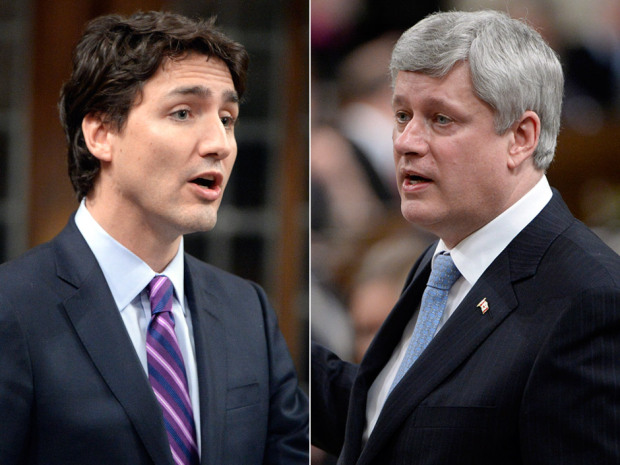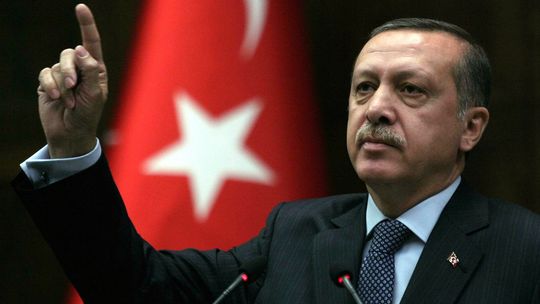Election Trends in 2015 – No Incumbent is Safe
In the political sphere, this year has started with a bang, when Syriza won the Greek parliamentary election. All of Europe’s attention was focused on this outcome and its aftermath over the coming six months or so. As it turned out, it was a bad omen for political incumbents nearly everywhere.
More recently, we have seen the government of Stephen Harper in Canada go down in flames, with its opponents winning an unexpected landslide victory. As an aside to this particular election: as a friend of ours who hails from Canada remarked, pretty much the only positive policy initiative he could identify so far was the new government’s plan to pursue the legalization of soft drugs (in our opinion the decision to refrain from overseas military adventures is a good idea as well).

Election winner Justin Trudeau (left) and loser Stephen Harper (right)
Photo credit: Adrian Wyld / The Canadian Press
Apart from that, Justin Trudeau’s new government seems to hold fast to the belief that the keys to “economic growth” are the redistribution of wealth and heavy government spending, which flies into the face of both theory and what are by now ages of bitter experience. On the other hand, Mr. Harper’s chief quality was that he refused to go along with global climate hysteria. Other than that, the man wasn’t much to write home about (for instance, his government did everything to boost an already dangerous housing and consumer credit bubble, with the aid of a more than willing central bank leadership).
In Guatemala, Jimmy Morales, a comedian who has never before been in politics (i.e., he seems to be Guatemala’s version of Beppe Grillo) and who reportedly has “eccentric policy ideas” (this doesn’t necessarily mean they are bad – we haven’t really checked them out) has decisively beaten the incumbent government. The previous government was apparently involved in corruption on a truly staggering scale (which is not necessarily a reason to lose an election). While we know little about Mr. Morales, he promises at the very least to have some entertainment value – which is the most voters can usually hope for anyway.

Guatemala’s new president Jimmy Morales
Photo credit: Jorge Dan Lopez / Reuters
In Turkey, the incumbent AKP led by Recep Tayyip Erdogan at first lost its absolute majority, but proceeded to simply try again in a repeat election a few months later. In the time between the two elections, the government decided to call off its truce with the Kurdish PKK and resumed bombing it, while Turkey was concurrently battered by frequent terrorist attacks and unrest. The aim seems to have been to make voters realize that they would be better off by voting for “stability”, which of course only Erdogan is supposedly able to provide.
This scheme ultimately worked, as the AKP party won the second election. The AKP government was involved in several major scandals as well (running the gamut from large-scale corruption, to heavy-handed suppression of dissent and competing political movements, to planning false flag attacks in neighboring countries), which goes to show that such scandals are per se not a reason to lose an election. Still, the first election proved that even a well-entrenched quasi-dictator of Erdogan’s stature is no longer safe from the incumbent’s curse.

Mr. Erdogan, in typical finger-wagging posture (if one takes a number of photographs at random during on of his speeches, at least one third of them will show him wagging his finger).
Photo credit: Adem Altan / AFP / Getty Images
Then we had Mahendra Modi’s BJP lose the regional election in Bihar – with quite a bang. It was widely considered a “severe political setback” for the prime minister who himself not too long ago swept to a stunning victory on a program consisting of wide-ranging reform promises.
The outcome of the Bihar election will certainly complicate his reign, and may even spell the beginning of the end for his rule. It seems that a surprising number of Indians increasingly see the BJP as a divisive party. Similar to Turkey’s APK, the BJP has religious roots, only it represents Hindu nationalism instead of Islamic nationalism.













Leave A Comment